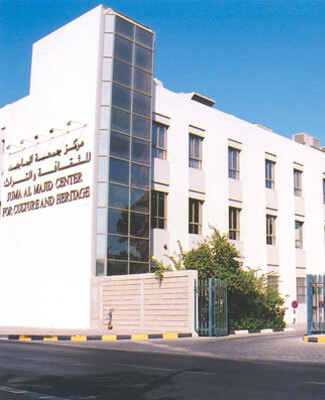
Juma AI-Majid Center for Culture and Heritage in Dubai is considered as one of the landmarks visited by all those who come to United Arab Emirates since it contains the academic heritage of the nation and the contemporary scientific civilization.
It was founded by Mr. Juma AI- Majid who was overwhelmed by a desire to serve the citizens of United Arab Emirates, in particular, and academic research scholars worldwide, in general. Mr.JumaAI-Majid, being a sensitive man and a lover of knowledge, felt that research scholars suffer hardships getting books they need. Hence he sought to alleviate their sufferings and overcome the difficulties they face obtaining the desired book.
In 1989, he laid the foundation-stone of the building which gradually grew and developed till it became full of treasures of knowledge which he put within reach of scholars wherever they may be.
He broke through his local limits to international dimensions. He goes to any place, however far off, to acquire an old manuscript or a rare book if it comes to his knowledge that there is one, a manuscript or book which was once the beacon of light, in the hope that acquiring it will dispel the gloom of darkness.
Since the goal of the Center was to serve and promote knowledge, the Center was divided into a number of departments, each department having a distinct goal and program and each serving seekers of knowledge.

To be a cultural reference, attracting researchers and lovers of heritage.

Collecting various cultural, intellectual and heritage materials, and submitting them to researchers in an easy way.
Sincere commitment and dedication in the performance of work.
Distinction and excellence in serving the researchers and scholars.
Providing a creative and professional work environment, committed to the values of teamwork and respect.
Achieving development and continuous improvement through highly creative ideas and talents.
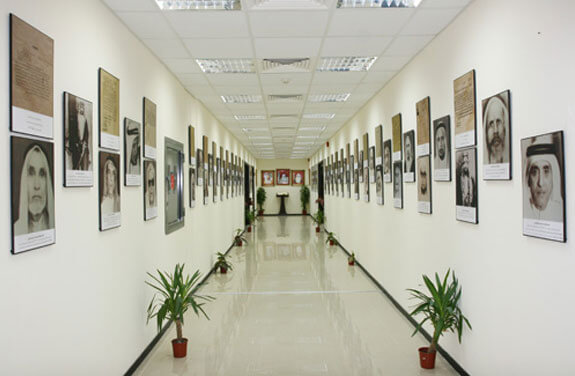
This section concerns with the history of the United Arab Emirates and the Arabian Gulf Region, and the political circumstances since the European occupation which led to the struggles that happened between tribes to get power and sovereignty, till the unification, progress and prosperity especially after the discovery of oil
Serving the users through providing various cultural items (Arabic & English books – articles – documents – maps - photographs) related to the United Arab Emirates in particular and the Gulf Region in general, also exchanging information with other cultural and educational institutions inside the United Arab Emirates and abroad.
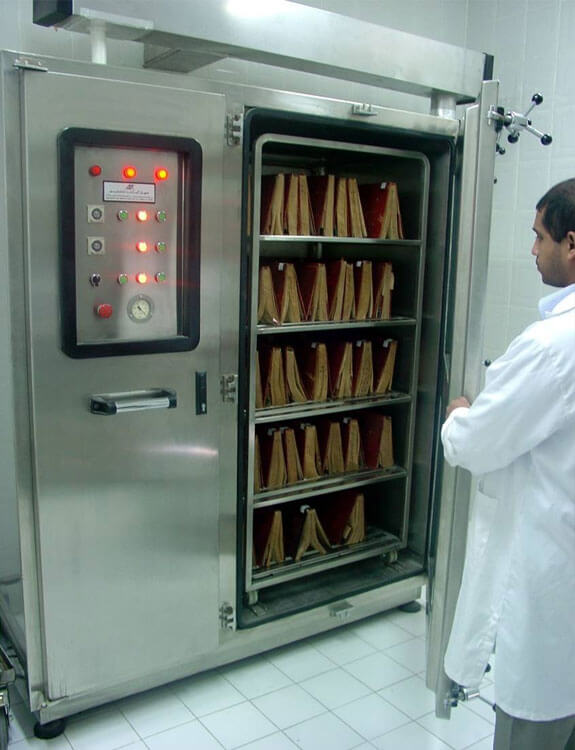
This department was established in August 1992, the main aim of this department is
This section is concerned with sterilizing injured manuscripts by chemical treatment, repairing damaged manuscripts technically and binding them by using covers of Islamic design in a way that befitting their dates of publishing, finally manufacturing all kinds of cases for keeping documents, books and manuscripts.
This section was established in October 1999, it is concerned with sterilizing all kinds of prints from the biological injuries and treating them chemically from acidity, breaking and dark colors, and then repairing them by using modern mechanical means.
This section is responsible for binding all varieties of books using the latest techniques such as natural leather, synthetic cover and cardboard, repairs the covers of the old books and manufactures all kinds of cases for books and collections.
Established in October 1999, it extracts pure cellulosed fibers from natural raw materials according to international specifications such as length, purity and moderate chemical condition in order to use them in all manual and mechanical repairing operations.
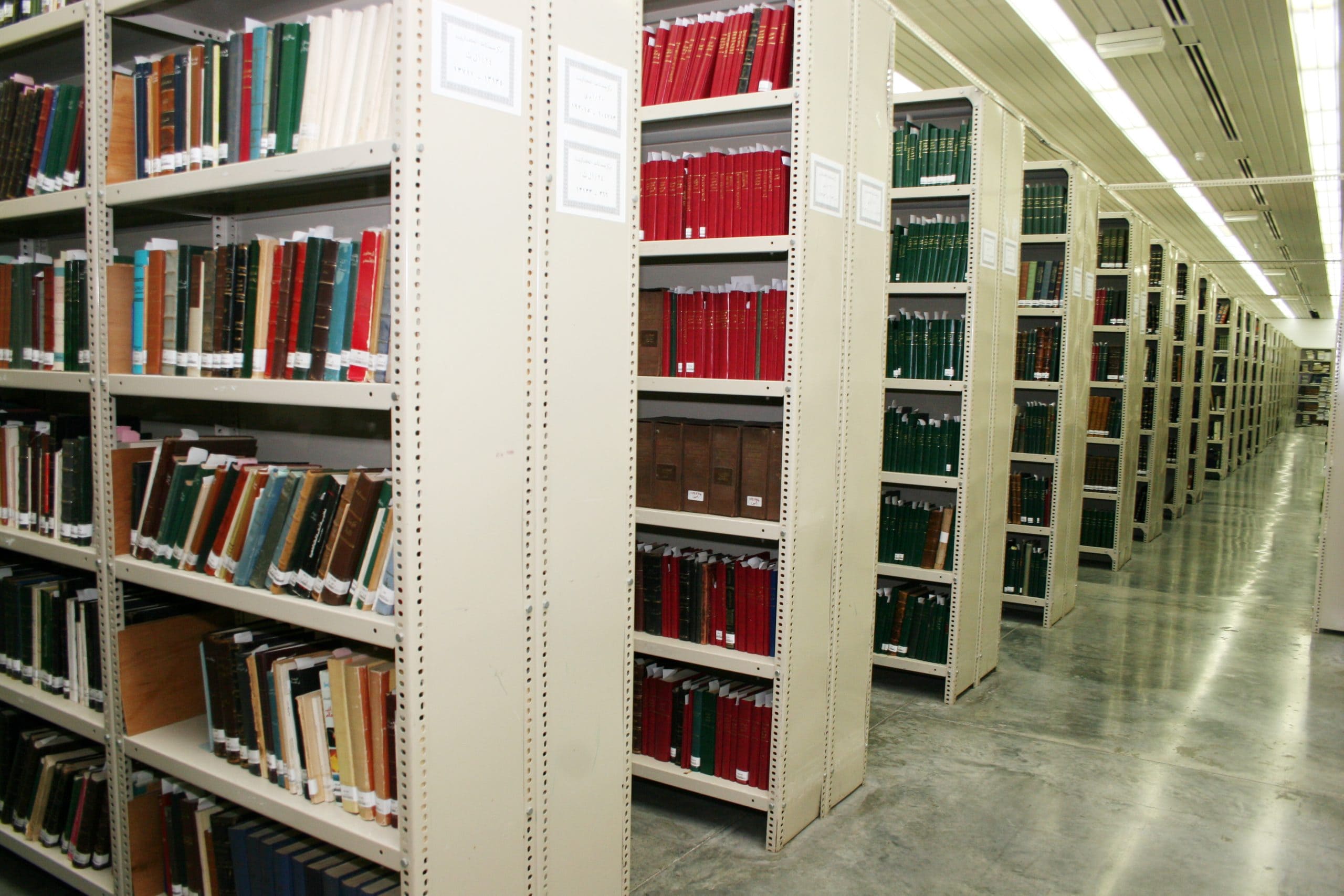
This library contains about 350000 titles including half million tangible units, their topics deal with culture, Arab heritage, Islam, Arabic language and Arab Islamic history, most of them are prints in addition to unprinted materials such as multimedia and digital materials. Main part of these materials are in Arabic, English, Persian, French and other languages.
The center possesses a number of private libraries which were built up by scientists, literary figures and thinkers from different countries. These libraries are now enriching the center with the rare and valuable books which were noted by their owners with remarks and comments that reflected their opinion whether they are critique, explanation or addition.
The center acquired these libraries by various ways such as purchasing, gifting, exchanging or endowment and the center owns now more than 80 private libraries dealing with different subjects such as literature, Shariah sciences, history and archeology according to the interest and specialization of their owners.
Juma Al Majid Center for Culture and Heritage bound itself to keep each of these private libraries in the same condition as it was with its owner, without changing its system of arrangement as to be grateful for the scientist who spent his time and effort for the sake of knowledge, learning and teaching, leaving for us a library as an evidence of his knowledge. The center has pledged to take care, maintain, repair and catalog these libraries for the benefit of all scholars and researchers.
Periodicals are considered the original sources of information. Their originality derives from the originality and quality of their contents. Periodicals are distinguished by the latest news of knowledge that not confirmed enough to be published in books. They are also distinguished by the joint efforts that one issue of a single periodical reflects the opinions of several thinkers and scientific inclinations.The library contains about 7000 titles in more than 660000 issues with different languages such as Arabic, English, French and Persian. The information of these periodicals has entered on the public library’s catalog
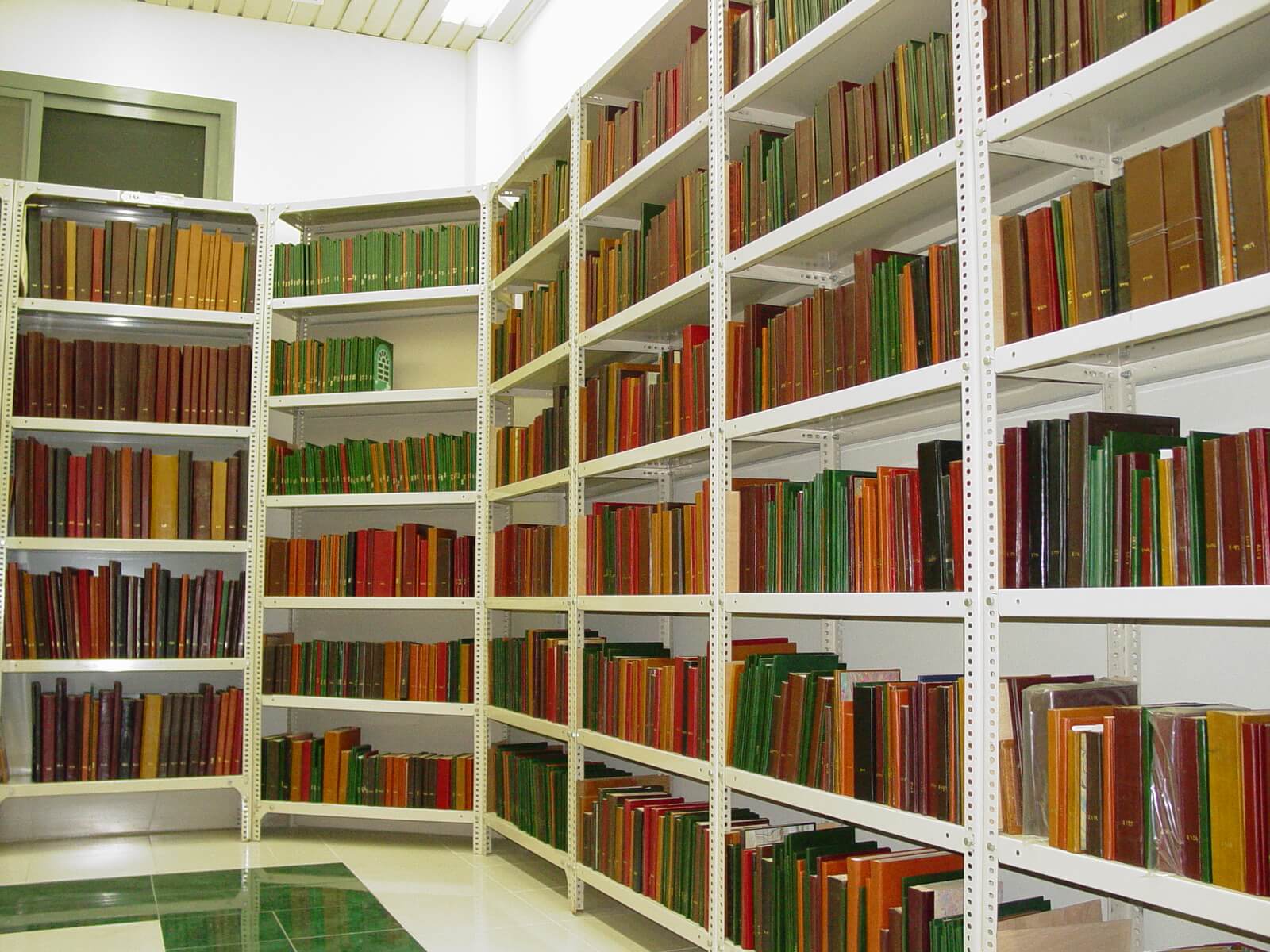
Manuscripts department is the corner that attracts the visitors, researchers and heritage lovers, as it is the treasures store of knowledge left by the ancestors of this nation.
Acquisitions of this department exceed three hundred thousand of original and photocopied manuscripts.
In general, tasks of this department include enriching the center’s library with rare Arabic and Islamic manuscripts, original or photocopied, then cataloging and classifying them in various ways to facilitate and provide researchers with cataloged manuscripts in order to be spread among people as the heritage is the basis of civilization and prosperity.
Tasks of this department are divided into the following three sections:
This section in cooperation with the other sections of manuscripts department aims to acquire the rare and useful manuscripts of Arabic and Islamic heritage to facilitate using them by the scholars and researchers.
This section is considered the starting point in preparing the detailed information about the manuscripts of the department seeking hardly to provide the researchers with accurate information easily in order to save time and effort.
Department of manuscripts accomplished three catalogs of the photocopied manuscripts on microfilm as the following :
It is one of the main sections in the manuscripts department as it keeps the manuscripts of the center. This section has many branches
All means of preservation, care and safety have been observed upon designing this place. The temperature should be between 15-20 degree and humidity should be between 50-60 degree. The number of manuscripts is 8000 volumes till now and contains more than 15000 titles of different subjects and ages.
They are copies of the original manuscripts collected from various resources with a number of 2.800 copies, containing more than 3500 titles which are kept in a special store where all means of keeping and safety are available.
Copies of the film manuscripts which were collected from different world libraries are kept in bookcases with drawers manufactured for this purpose containing about 9000 microfilms of more than 80.000 titles.
They are the manuscripts which are kept on CDs collected from various libraries by exchange, purchase or photographing by the foreign delegations of the center and the number exceeds 330000 titles.
It contains about 80% of the international libraries catalogs of manuscripts arranged according to countries to be easily referred to.
This branch is specialized in photographing all materials of the department as manuscripts and documents, providing the researchers with their needs by photocopied papers, films, and CDs, and transferring films and microfiches on papers.
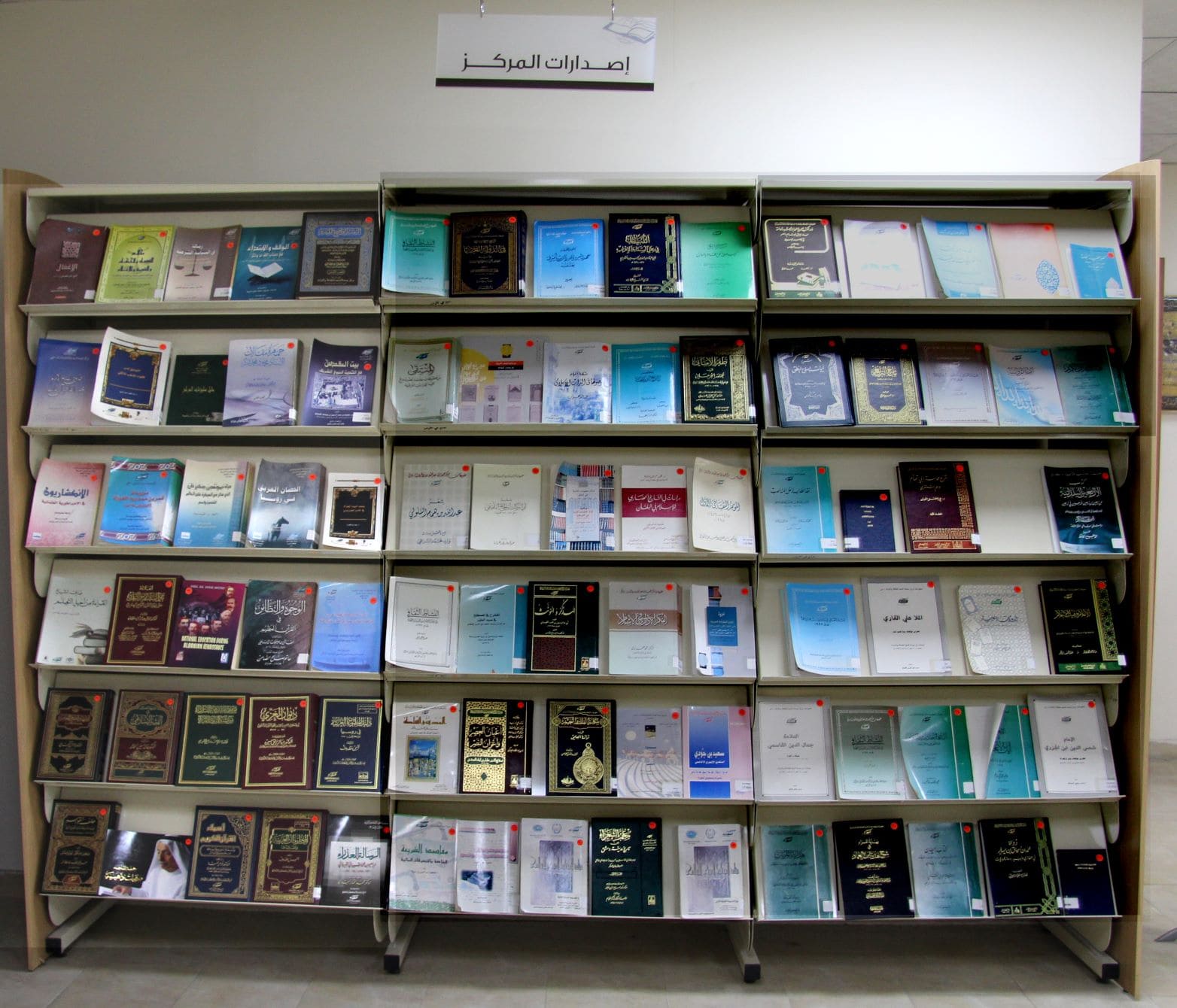
The department of studies, publications and foreign affairs is considered one of the specialized departments which aim to activate the educational and cultural role of the center in the United Arab Emirates in particular, and the GCC and other Arab and Islamic countries and the whole world in a unique and innovative way.
This department aims to achieve its goals through the following sections:
This section is responsible for issuing The magazine “Afaaq Al - Thakafah wa Al Turath” (horizons of culture and heritage) which is a scientific quarterly periodical, it is interested in contemporary cultural and intellectual topics, and heritage. Its first issue was published in the beginning of 1992, and the number of issues till now is 78. On the one hand, this magazine is distinguished by its profusion and seriousness of topics, and on the other hand by its comprehensiveness of various cultural and heritage aspects. It contains literary, scientific and philosophical articles as well as comparative studies and verified texts of heritage. It attracts great academic writers. The magazine deals with sensitive and contemporary topics. It has been able to make the heritage in the service of the present, presenting to Arab readers a vision of the future depending on cultural roots.
The scientific researches are the base of this section, within an annual plan determining a general framework of these researches and their numbers. These researches should be either original Arabic or translated from other languages. All researches, Arabic or translated, are characterized by their seriousness and objectiveness and all of them whatever their nature and source, are subjected to the scientific assessment.
These researches are prepared either by researchers from the center or by external scholars. All this is done within the general framework of the plan which was already drawn up to serve the cultural mission of the center.
This section also translates the significant scientific texts from multiple languages, especially the studies concerning the Gulf affairs, as well as printing the useful and important translated works.
In the near future this division will include the verification and publication of heritage texts in its program.
This section works on searching for libraries of manuscripts in the world, whether public or private, and evaluation of their manuscripts, it also follows the news of manuscripts in the world and concerned institutions, likewise searching for the professionals dealing with manuscripts, along with the preparation of detailed reports on the manuscript libraries of each country independently, as well as searching for manuscripts on the Internet.
The tasks of this section is documenting and archiving the data, information and documents relating to the department and its works especially the external one and news of foreign trips and the execution of agreements.
Foreign Cultural Relations and Agreements Unit
This unit concerns with developing and promoting relations with cultural establishments ,centers, universities, public and private libraries as well as academicians in the field of culture and science, exchanging experiences, books and periodicals, and cooperation in photographing, restoring and preserving manuscripts.
This unit is also responsible for the preparations in signing cultural agreements with specialized bodies, and follow up the execution of these agreements according to the schedule laid down for them.
It oversees the issuing of Akhbar al Markaz (News of the Center), a pamphlet concerns with the news of the center, issued every two months, as well as this section designs booklets that give information about the center and its mission.
This section also coordinates the scientific and cultural cooperation between the center and other bodies, and individuals inside and outside the country. It also follows up the scientific and cultural activities of the center by organizing participation in conferences, symposiums and lectures, activating the cultural role of the center through participating in various cultural activities inside the country and abroad at local, regional, Arabic and international levels.
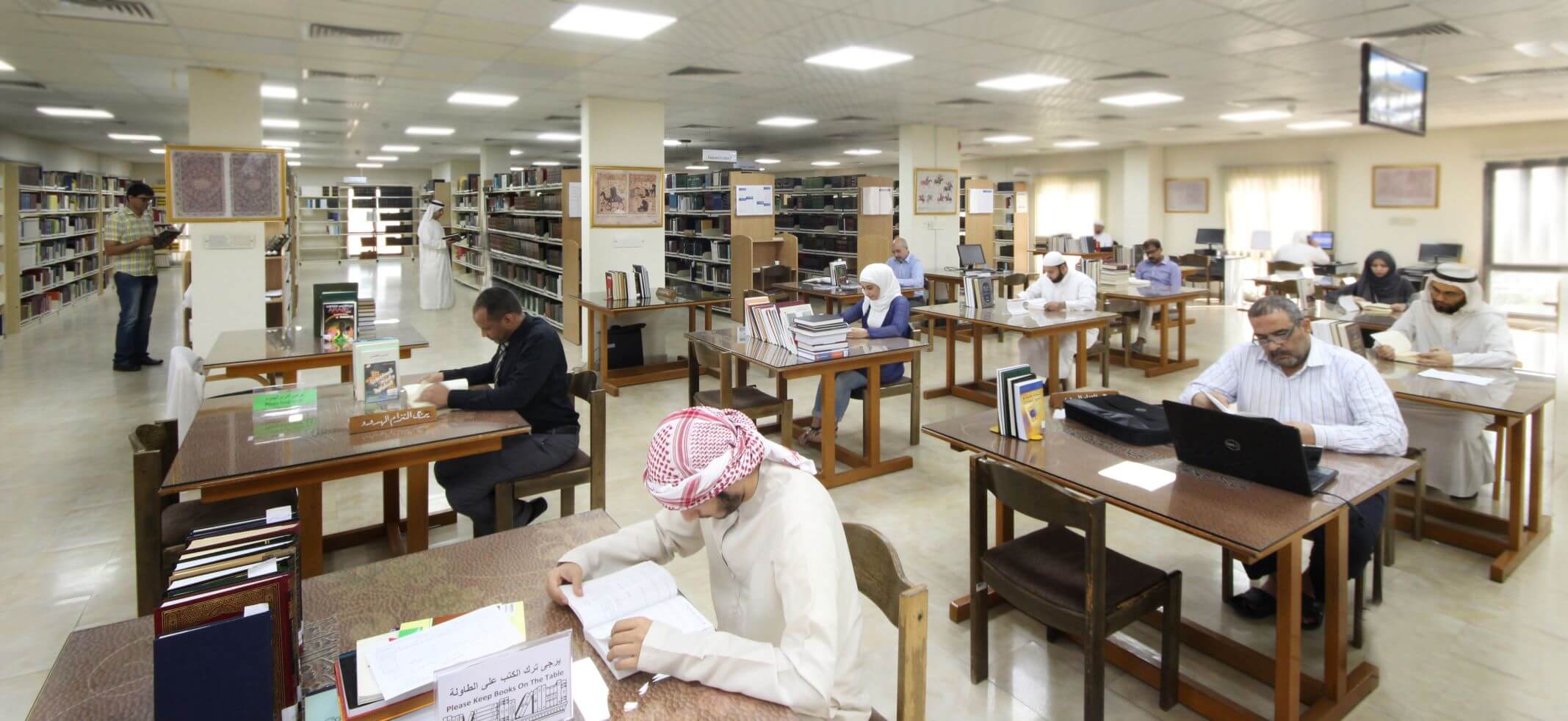
This section aims to achieve the most benefits for researchers , enhances the cultural and educational consciousness through giving facilities to be aware of the references related to the library ofthe center.
Providing various information for researchers quickly and easily, in order to increase awareness, spread culture and serve scholars and researchers.
Through providing materials to researchers and readers inside this section.
Through telephone, fax, E-mail or by personal attendance.
Free of charge service for researchers with out any subscription or cost.
Aims to inform the researchers of what are the recent materials that match their needs.
Refers to useful links for the center, library and the users..
Available for all with special conditions and at low price.
This section provides services from 8 a.m.– 7.30 p.m. daily except Friday and public holidays

It is an active unit and communicative way aims to promote the relations between the center, the public and other institutions and it seeks always to show the good image of the center.

The cataloging and classification department is considered a laboratory in which the library acquisitions (printed and unprinted) are processed in a systematic way to facilitate using them and getting the required information quickly, precisely and easily, depending on technical specifications and international standards.
This department is responsible for enriching the library through providing various cultural materials (printed or unprinted) which are needed by scholars and researchers, and facilitating getting them in order to get benefit from the cultural materials available in the center’s library.
Gifting is considered one of the ways acquiring materials of the library, especially those materials which can’t be acquired by purchase.
Gifting means that a person, institution or establishment volunteer to present the library materials without any cost, the center gifts books and other materials to other institutions.
Exchanging is considered an important mean of enriching the library and achieving the center’s goal, it is an agreement between the center and another institution, as they present each other dispensable various materials of precious value.
The library can exchange the following materials :
Starting from August 2019
The phone numbers of Juma Al Majid Center for Culture and Heritage have changed